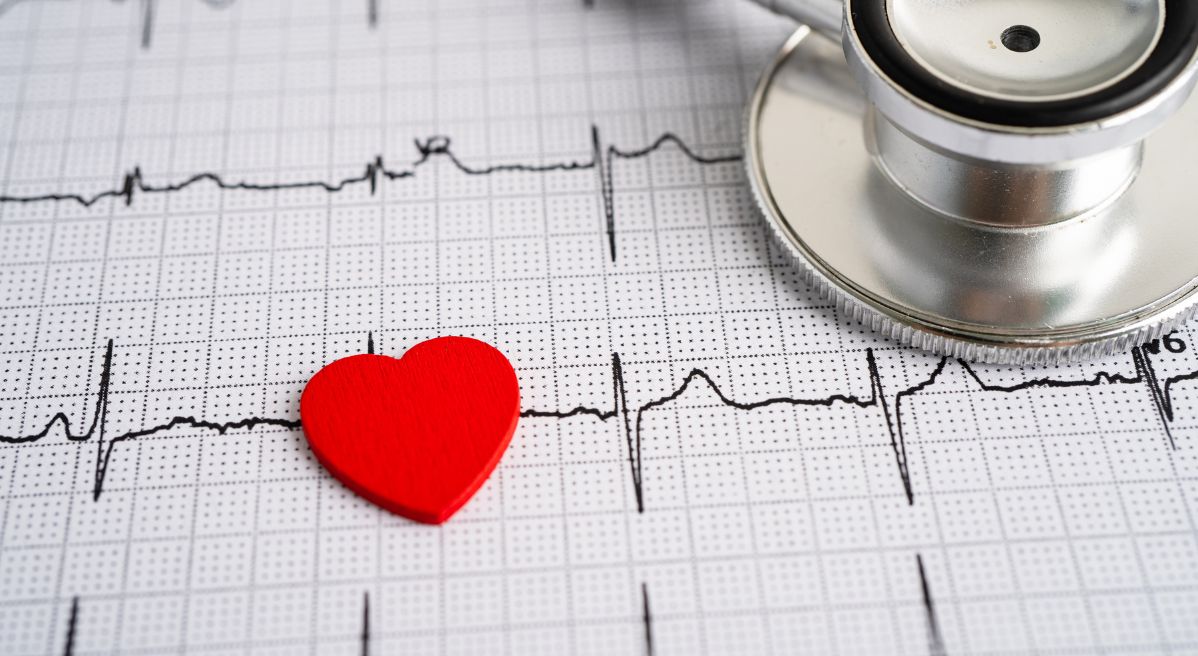Have you ever thought about the fact that the heart is actually a muscle and that it will be stronger and healthier if you exercise? Your heart needs exercise to be healthy and have enough strength to pump 7,500 liters of blood daily. Moderate physical activity has a beneficial effect on the entire body, including the heart. However, that is not enough. Strengthening the heart is possible with exercise, along with a healthy diet and certain vitamins.
In any case, before you start exercising, engaging in sports, or taking supplements to strengthen your heart, consult your cardiologist. Only a doctor can determine the level of exertion your heart can withstand and which supplements it needs, especially if you have a cardiovascular disease.
Nevertheless, there is one simple activity that is recommended to everyone, even individuals with serious heart conditions or those who have had heart surgery – a brisk walk lasting 30 minutes a day can strengthen the heart.
Exercise can strengthen the heart
Physical activity also has a preventive effect when it comes to heart diseases. The risk of developing cardiovascular diseases is twice as high in people who do not exercise and are not physically active. Regular physical activity improves circulation, contributes to fighting obesity, lowers blood pressure, lowers LDL “bad” cholesterol, and raises HDL “good” cholesterol levels, essentially strengthening the heart muscle.
What you need to know before starting an exercise routine
Before starting an exercise routine, be sure to consult your doctor about the type of physical activity that is allowed for you, its intensity, and how long each session should last. If you have a heart condition, consider the following recommendations:
- It is important to note that you should not exercise on a full stomach or early in the morning. Digestion requires increased blood flow, so if you engage in physical exertion at the same time, there is a risk of overloading your body. Upon awakening, there is a rise in blood pressure and an increase in heart rate, which also poses a risk of overexertion.
- If you exercise outdoors, avoid doing so in extremely cold weather, during the hottest hours of the day, or when the humidity is above 70%.
- It is recommended to start your workout with warm-up exercises, stretching, or a slower pace, and then gradually increase the intensity.
- If you experience fatigue, dizziness, chest pain, or shortness of breath, immediately stop exercising or engaging in physical activity.
Which cardio exercises are good for the heart?
Experts recommend a combination of three types of exercises for a healthy heart: aerobic exercises, strength training, and stretching exercises.
Aerobic, or cardio, exercises of moderate intensity are commonly recommended for those who care about their heart health and want to strengthen their heart. “Aerobic” means that this type of physical activity requires oxygen. During aerobic exercise, breathing rate increases, and circulation improves. The body receives sufficient oxygen as the lungs expand, and the heart pumps blood more efficiently.
Examples of aerobic exercises include brisk walking, running, cycling (both outdoor and stationary), swimming, aerobic workouts, dancing, basketball, soccer, and tennis. If you have joint issues, swimming is a particularly good choice.
Strength training exercises include push-ups, squats, abdominal exercises, weightlifting, and various machine exercises at the gym. These exercises help strengthen muscles and improve muscle tone.
Stretching and flexibility exercises are beneficial to perform for about 5 minutes before and after your workout/exercise. While they do not have a direct impact on heart health, they contribute to better flexibility, balance maintenance, stability, and fall prevention.
Which vitamins are good for the heart?
In addition to exercise, a proper diet with adequate intake of vitamins, minerals, and fiber can help strengthen the heart. Often, the amounts of vitamins and minerals we obtain from food are insufficient, so cardiologists recommend the following supplements to their patients: Omega-3 fatty acids, Coenzyme Q10, magnesium, folic acid (B9), vitamin B12, and L-carnitine.
Omega-3 fatty acids lower triglyceride levels and blood pressure, indirectly improving circulation and cardiac function. A clinical study has shown that they reduce the risk of heart attack by 28% and the risk of death from a heart attack by 50%. Patients with atrial fibrillation should not take this supplement.
Coenzyme Q10 contributes to lowering blood pressure and is recommended as an essential addition to statin therapy (medications for high cholesterol). It reduces the inflammatory process in viral infections that affect the heart (such as COVID-19 and Coxsackie virus), so it is recommended in myocarditis. Patients with optimal levels of Coenzyme Q10 experienced less heart damage after a heart attack.
Magnesium is necessary for maintaining a normal heart rhythm and blood pressure. This mineral is involved in transporting electrolytes (calcium and potassium) into cells. These electrolytes are essential for proper nerve signals and heart contractions, and thus, a regular heart rhythm. Insufficient magnesium levels can lead to arrhythmias. Inadequate magnesium concentrations are associated with high blood pressure, the formation of plaques within blood vessels, and thickening of artery walls.
Folic acid is vitamin B9 that helps lower homocysteine levels, which can cause arteries to become thickened and brittle.
Vitamin B12 also lowers homocysteine levels.
L-carnitine is an amino acid that transports fats into mitochondria within cells, where fats are converted into energy. Several clinical studies have shown that it improves cardiac function and reduces the severity of angina symptoms. L-carnitine is recommended for patients who have survived a heart attack because it contributes to reducing heart damage.
Clinical studies have shown that vitamins C, D, and E do not have a significant impact on heart health.
IMPORTANT: It is essential not to take any supplements without medical advice, but only based on the recommendations and dosages determined by your doctor.
Physical activity can still be the best way to strengthen the heart
Supplements can often compensate for the lack of certain substances that we don’t obtain through food, but nothing can replace physical activity. Therefore, don’t be lazy to move, exercise, and engage in activities that require moderate effort because all of these have a beneficial effect on heart health.





